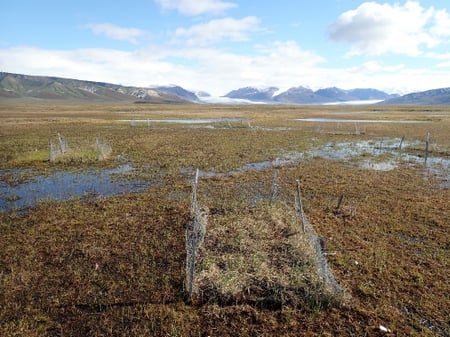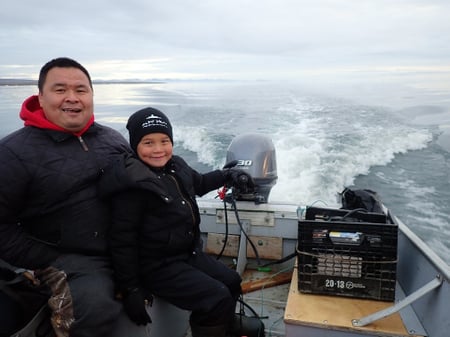In this ArCS research program, I stayed at Bylot Island and Pond Inlet, located at Nunavut, Canada. Bylot Island is a National Park (Sirmilik national park) which is strictly protected by the Canadian government. To enter this island, we need to take an orientation session for the permission at Parks Canada and arrange the helicopter by our self. This strict management contributes to the maintenance of beautiful natural ecosystems. Pond Inlet is an Inuit village at the north Baffin. Many researchers use this village as a logistics base for research in Bylot during summer.
In this stay, I studied how the ecosystems are affected by geese, migratory bird and one of the most important primary consumer in the Arctic. In recent years, the behavior and abundance of geese have been altered by global anthropogenic-driven changes. These biological changes in species’ behavior and abundance in turn, could have profound effects on ecosystem because of their intense herbivory and high nutrient droppings. One of our study sites, Bylot Island is the greatest colony of geese (Migrating greater snow geese, Anser caerulescens atlanticus) around the world. To know the effects of the geese herbivory, my collaborating institution, the Center for northern study (CEN, Canada) have done some long-term experiments here (e.g. geese exclosure and fertilization). On the other hand, the geese population around the Pond Inlet, our second study site, has been considerably declining because of the civilization (e.g. increase hunting efficiency and noise of airplane). In my study, I compared the ecosystems in Bylot Island and Pond Inlet, with and without geese. In my overview, there were considerable differences in plant biomass and traits, although both sites were preferred habitat by geese (graminoid dominant wetland). By combining the results of long-term experiments in Bylot Island (Geese exclosure and fertilization), I expect to detect the effects of geese existence on the ecosystem functioning from the long-term habitat separation (Bylot Island and Pond Inlet).
Alongside with my research, I have had a lot of precious experiences during this stay, such as the daily conversation in English, exposure to the Inuit traditional and present culture and beautiful Arctic landscapes. I would like to express my sincerest appreciation to the ArCS funding program and everyone who supported my research.
Keita Nishizawa(Yokohama University)

(Photo 1)Geese exclosure experimental site in Bylot Island

(Photo 2)Seal hunters who send me to the research site in Pond Inlet




